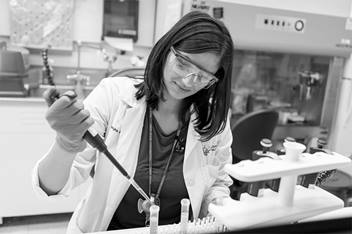Thakkar Lab
Under the direction of Rajan Thakkar, MD, the Thakkar lab’s research aims to examine immune function at the systemic and tissue level in pediatric thermal injury using both whole blood and tissue specimens. In addition to human specimens, the laboratory also has an animal model of thermal injury to study underlying mechanisms of immune dysfunction.
Lab Staff

Rajan K. Thakkar
Principal Investigator
Rajan.Thakkar@NationwideChildrens.org
Rajan K. Thakkar, MD, FACS, is a pediatric surgeon. Dr. Thakkar is the Trauma medical director as well as the co-director of the Burn Center at Nationwide Children's Hospital. He is an associate professor of Surgery and Pediatrics at The Ohio State University College of Medicine and is a principal investigator at the Center for Clinical and Translational Sciences Research at the Abigail Wexner Research Institute of Nationwide Children's Hospital. His research focuses on pediatric thermal injury. Dr. Thakkar attended The Ohio State University in Columbus, Ohio. He completed his residency at Brown University in Providence, Rhode Island and completed his fellowship in Pediatric Surgery at Nationwide Children's Hospital.

Julia Penatzer, PhD
Post Doctoral Scientist
Julia.Penatzer@NationwideChildrens.org
Julia Penatzer, PhD, is a research scientist in the Thakkar Lab. She obtained her doctorate from West Virginia University and joined Dr. Thakkar’s lab as a postdoc in July of 2021. During her time at WVU she had two primary projects that explored early signaling associated with complex stressors. In one project, Julia investigated the significance of systemic biochemical and physiological responses in human studies involved in managing stress, team dynamics, and performance to elucidate the impact of biological processes in stressful situations. In the second project, she explored the localized acute phase phosphoprotein responses to a complex mixture of stress hormones and organophosphate pesticides in discrete brain regions of a murine model. Additionally, during this time, she was fortunate to work closely with others in her lab observing cell signaling pathways in clinical samples of chronic joint infections, which led to a newly found interest in translational research. In Dr. Thakkar’s lab, Julia’s research has primarily focused on understand the mechanisms driving immune suppression after burn injury with hopes to identify biomarkers that may serve as a risk factor for the subsequent development of infections.



